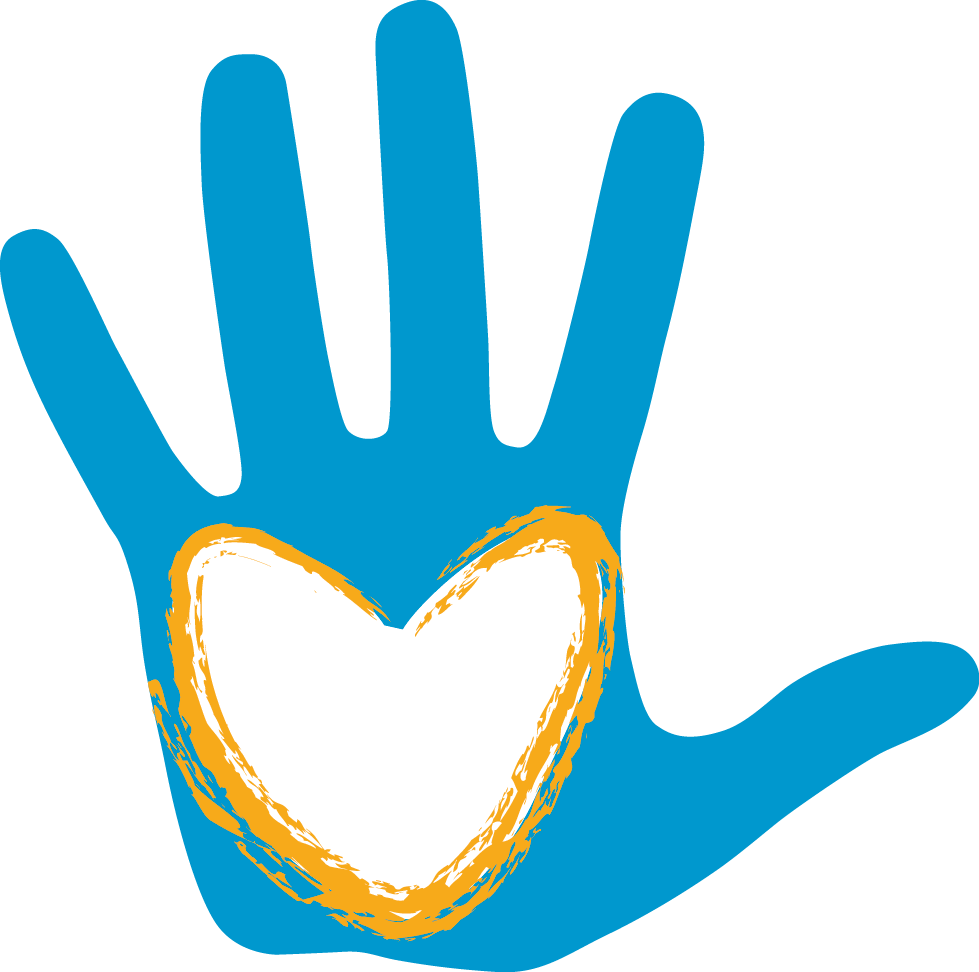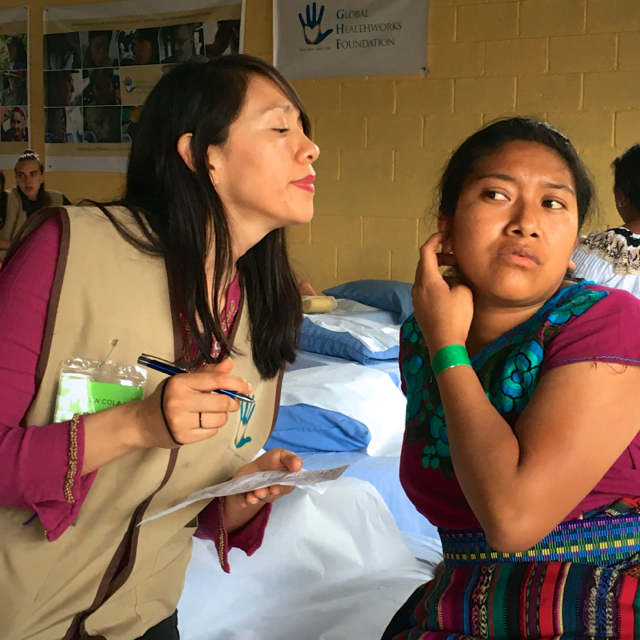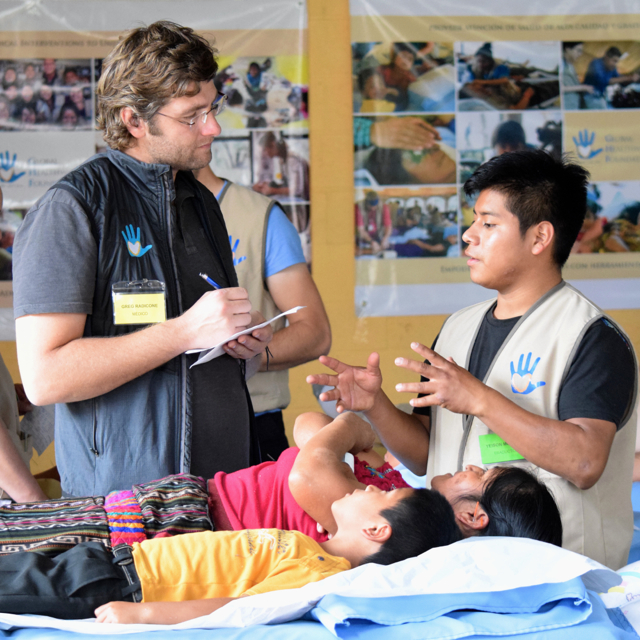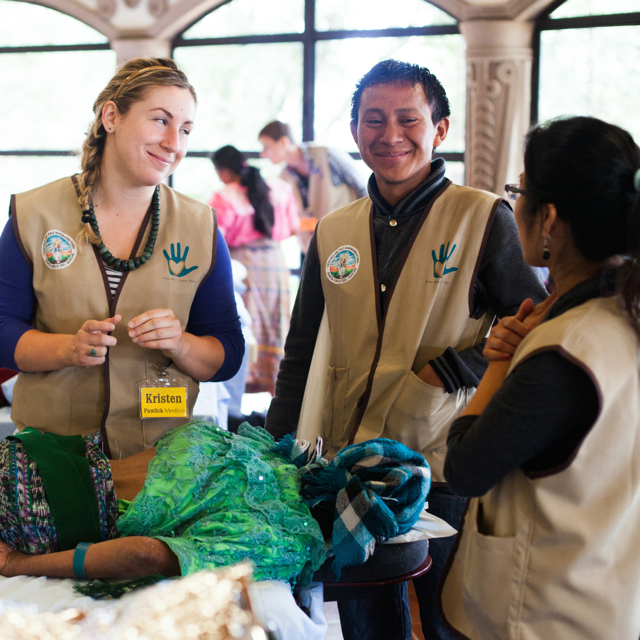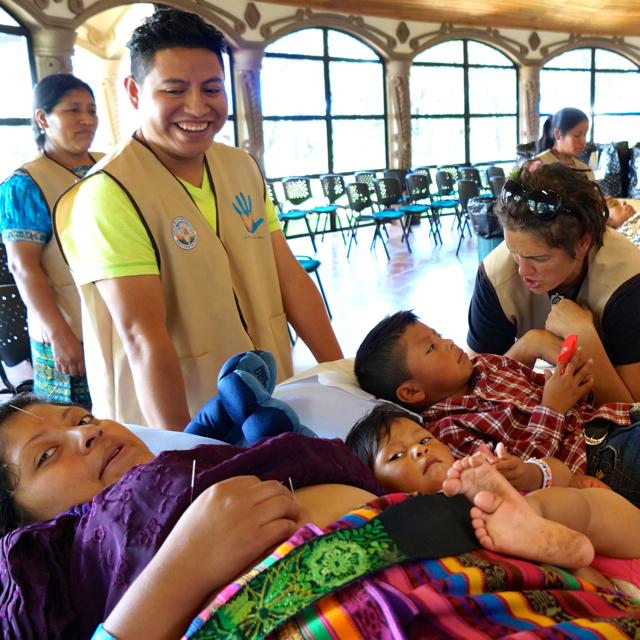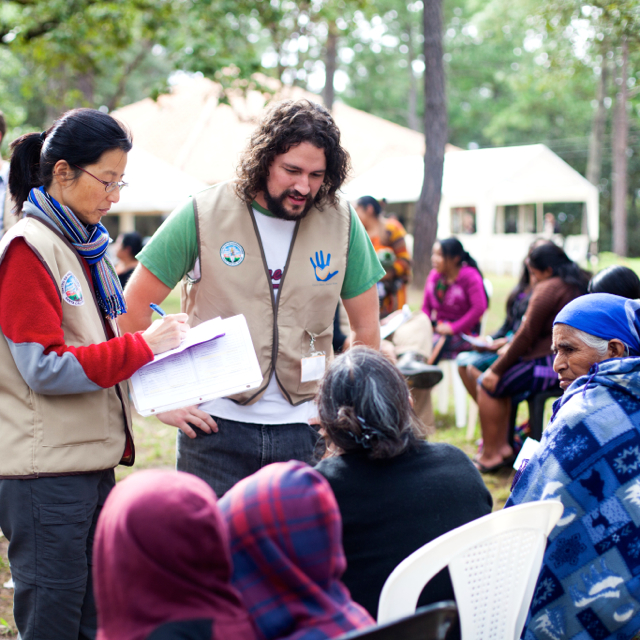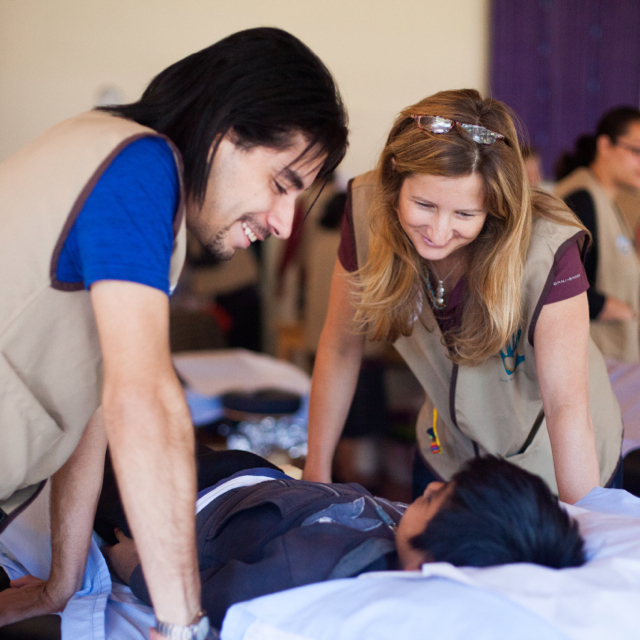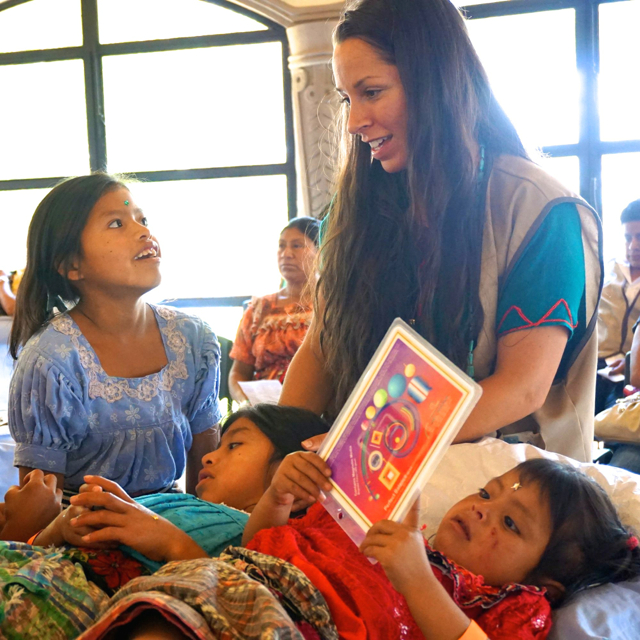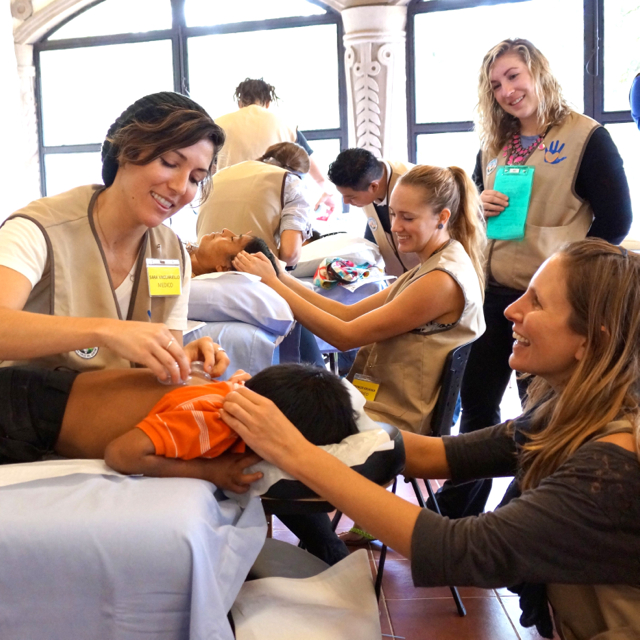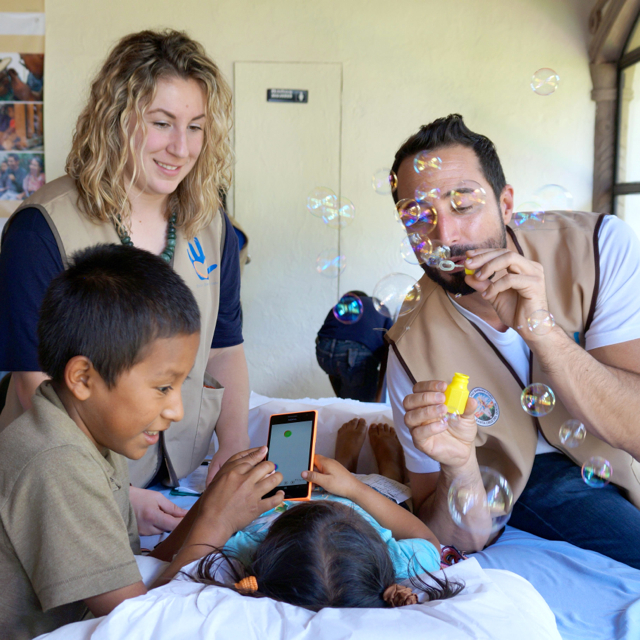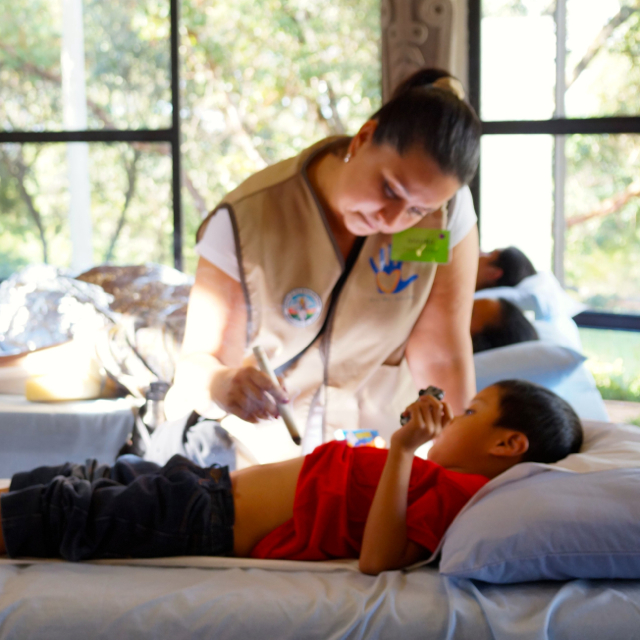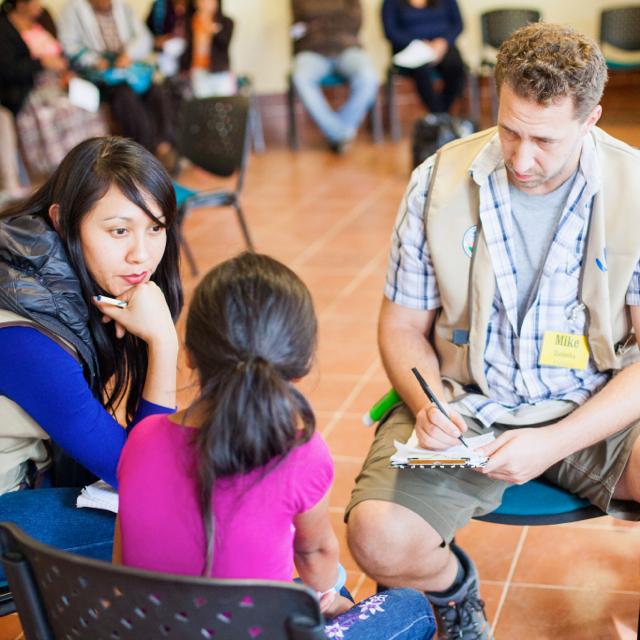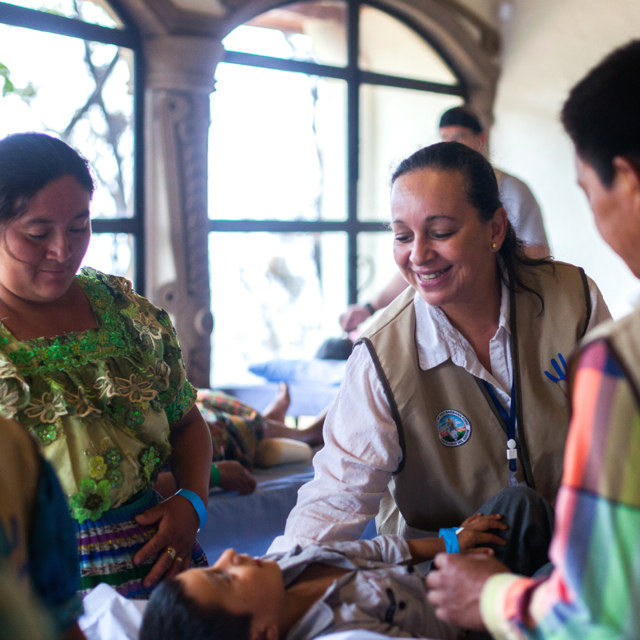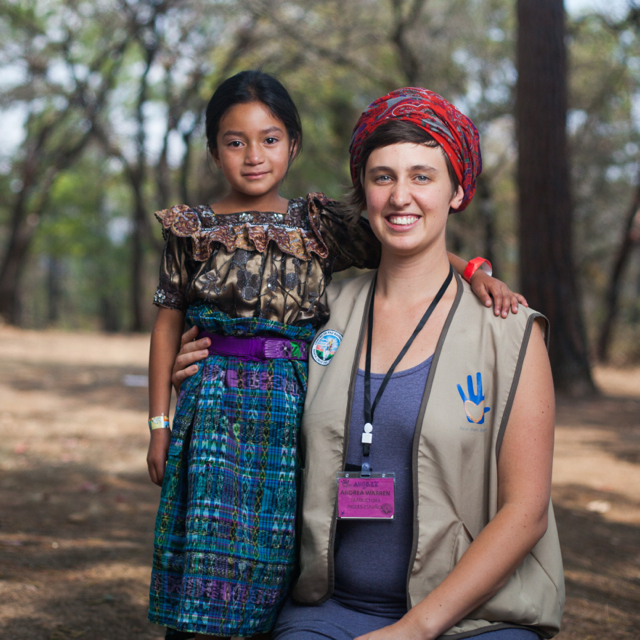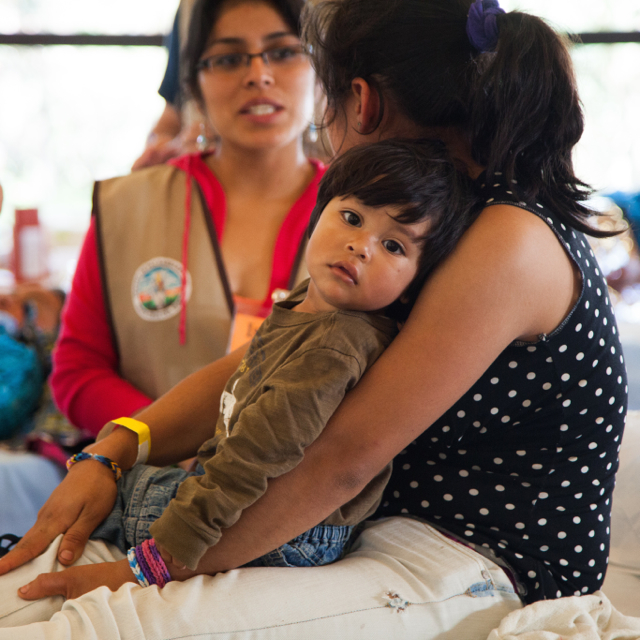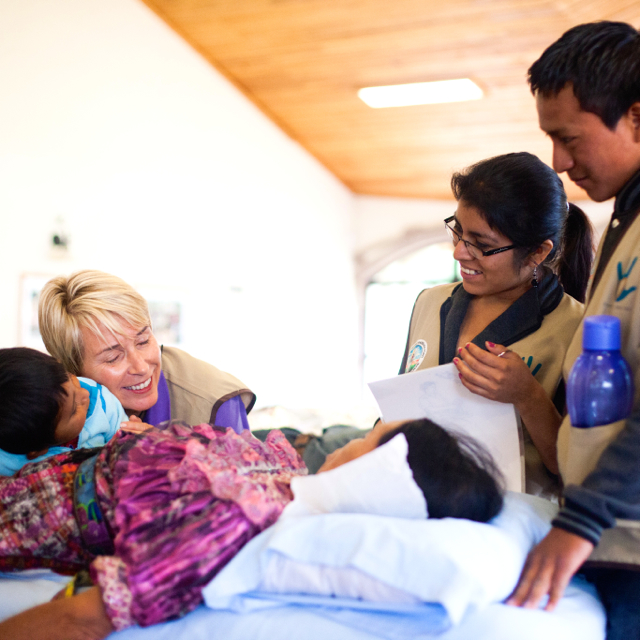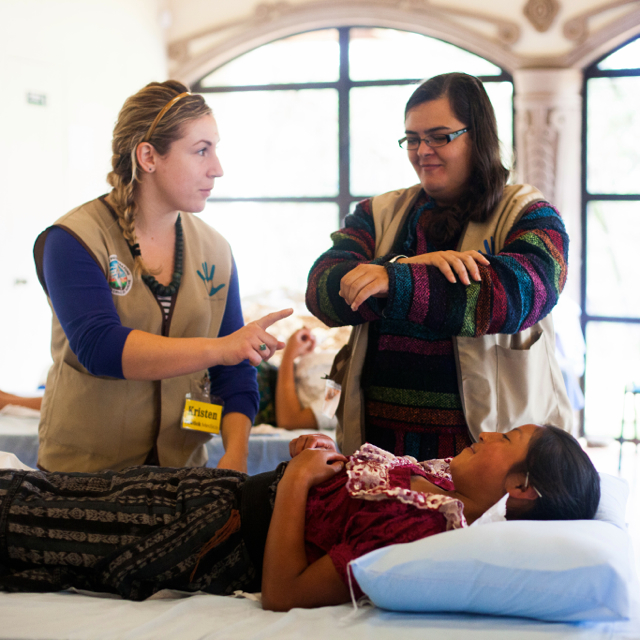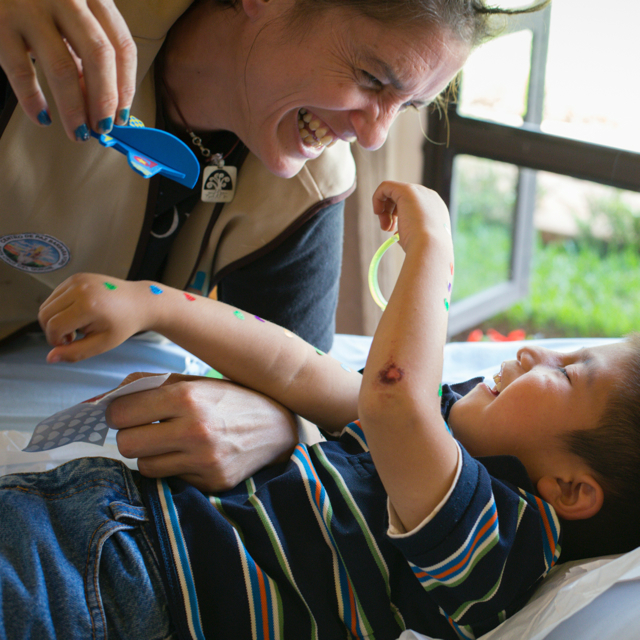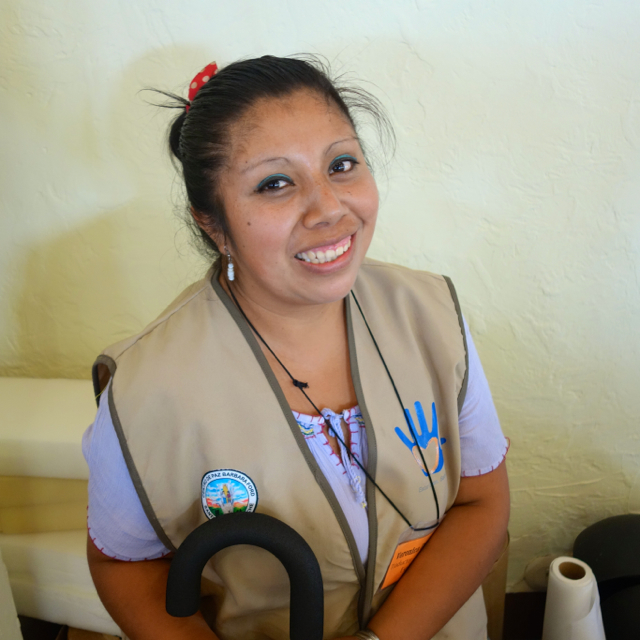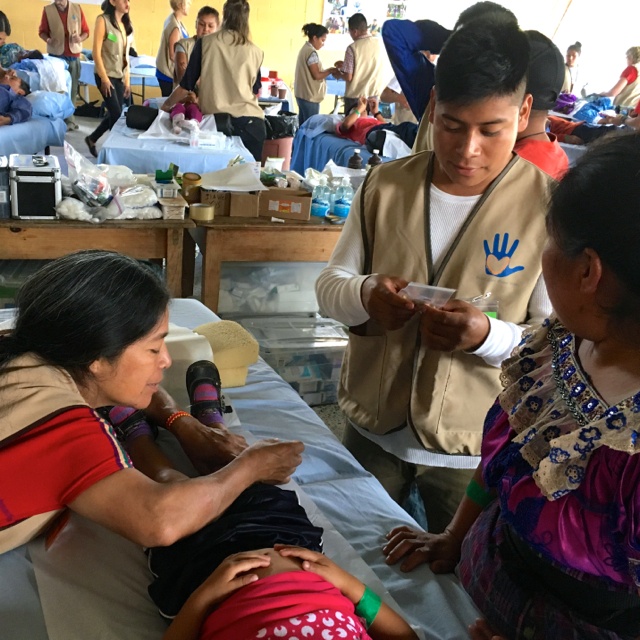GHF’s local team of interpreters play a huge role in the success of our medical outreach work in Guatemala. They do a fantastic job translating four languages: English, Spanish and two of the indigenous Mayan dialects – K'iche' and Ixil. They are a true asset to their communities, and we are incredibly grateful for all they do for our outreach teams and the Guatemalan people. Read about the great work these local translators do for Global Healthworks Foundation below.
Jornada Interpreters Facilitate More Than Just Communication
It’s the third day of the October 2014 jornada (medical mission), and the team seems to have found its groove. Patients are moving smoothly from station to station, the supply table is stocked and organized, and practitioners and interpreters have discovered an effective system of communication. Before acupuncturist Christiane Mauro even needs to ask, Sara Aguilar, her Spanish-English interpreter for the day, greets the patient lying on the treatment table before them. “¿Cómo le podemos ayudar? (How can we help you?)” Sara asks the elderly man. As soon as he responds, she explains his complaints to Christiane in near-perfect English. “He says he has a headache and has trouble sleeping. And he’s suffering from gastritis.” With complete trust in Sara’s translation, Christiane grabs her needles and begins her treatment.
Sara Aguilar
Sara is one of eleven Spanish-English and Spanish-K'iche' interpreters recruited to work with Global Healthworks Foundation (GHF) at the most recent Quiché jornada. Considered one of the team’s veterans, Sara has worked with GHF since 2012 and become incredibly skilled in not only translating in an efficient manner, but also understanding the deeper meaning behind what some patients verbalize. “Many patients repeat the same phrase: ‘Me duele mi corazón (My heart hurts),” says Dan Wunderlich, GHF Founder and Executive Director. “The practitioners need to be clear that the patient is complaining about grief—something that is common among people living in Quiché—and not physical heart pain. Our long-time interpreters like Sara understand this and have helped teach newer interpreters how to communicate it to the acupuncturist.”
“Our translators play a huge role in the success of our jornada.”
Magda Garzona, another “veteran,” has also worked with GHF since the first jornada in April 2012. Each time she is called upon, she says, she jumps at the chance to work with the team again. “Me encanta el idioma inglés, así que cada vez que tengo la oportunidad de practicarlo, la aprovecho (I love the English language, so every time I have the opportunity to practice it, I take it),” she explains. Magda has interpreted for a number of volunteer groups in her native Guatemala, but especially loves working with GHF because, she says, the team offers “formas de aliviar el cuerpo (forms of healing the body)” to her community. “Muchas veces es más importante aliviar la mente y el espíritu para que el cuerpo mejore. La acupuntura, mezclada con los otros tratamientos como yoga, Reiki, etcétera, es un gran beneficio para la gente del Quiché. (Many times it’s more important to heal the mind and spirit before the body gets better. Acupuncture, mixed with other treatments like yoga, Reiki, et cetera, is a great benefit for the people of Quiché.)”
Magda Garzona
And the work of Magda and her fellow interpreters is undoubtedly a great benefit to the GHF team. “We couldn’t do what we do without the interpreters,” Christiane says. “There are some basic ways of communicating with patients, but we definitely rely on them. They’re really good.” What’s particularly good, adds Dan, is the manner in which interpreters are able to express concern or give self-care instructions to patients. “Sometimes it is challenging for the English-speaking practitioners to get those messages across,” he says. “But the translators understand what needs to be communicated and work in such a way that the practitioner knows that the right things are being expressed. All that makes our job a lot easier!”
Evelin Colaj
For Evelin Colaj, a social worker who joined the GHF team as an interpreter in 2013, it’s not hard to translate the practitioners’ concern to patients because she feels it, too—and she wants to help. “Me encanta hacer algo para la gente (I love to do something for the people),” she says. “Traduzco para ayudar a mi gente. Y amo trabajar con Dr. Dan y su equipo. Son comprometidas con su trabajo. Y eso me inspira. (I translate in order to help my people. And I love to work with Dr. Dan and his team. They are committed to their work. And that inspires me.)”
The deeper connection Evelin feels for patients isn’t only characteristic of returning interpreters. Even among newer recruits, the compassion for patients is palpable. “I’ve always thought that being able to help others with their pain is one of the most noble actions,” says Sofía Wer, a new interpreter at the October jornada. “As I’m not a doctor or caregiver myself, interpreting was the closest I could get to helping and supporting the jornada and GHF. The dedication and love with which these people care for my fellow Guatemalans makes me feel very grateful. They are truly beautiful people.”
Dan returns the sentiment. “Our translators play a huge role in the success of our jornada.” he says. “They are a true asset to their communities, and we are incredibly grateful for all they do for our team and the Guatemalan people.”
